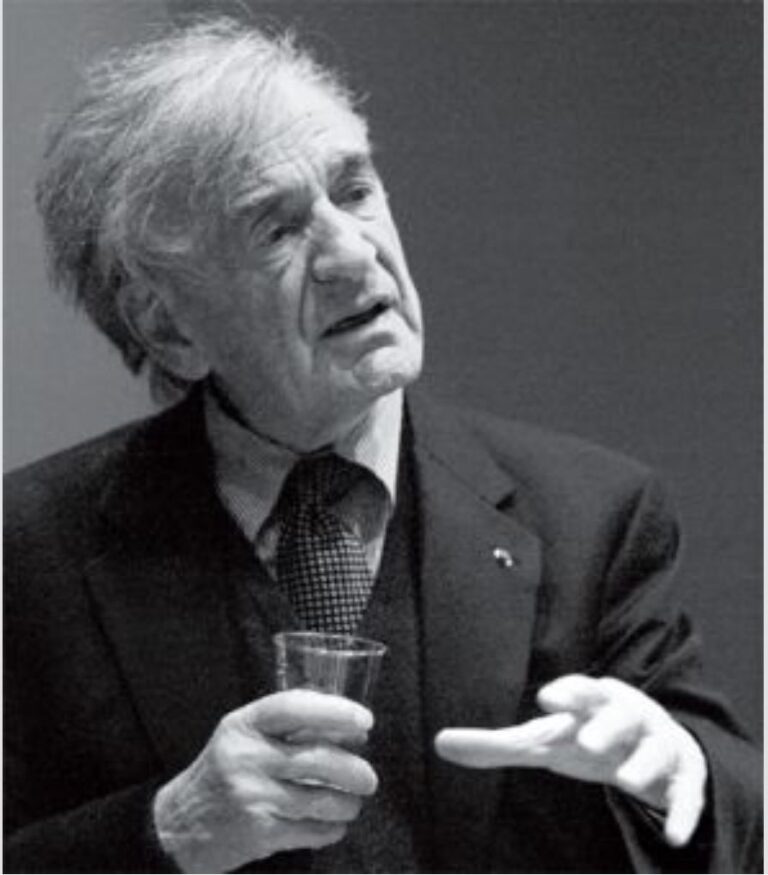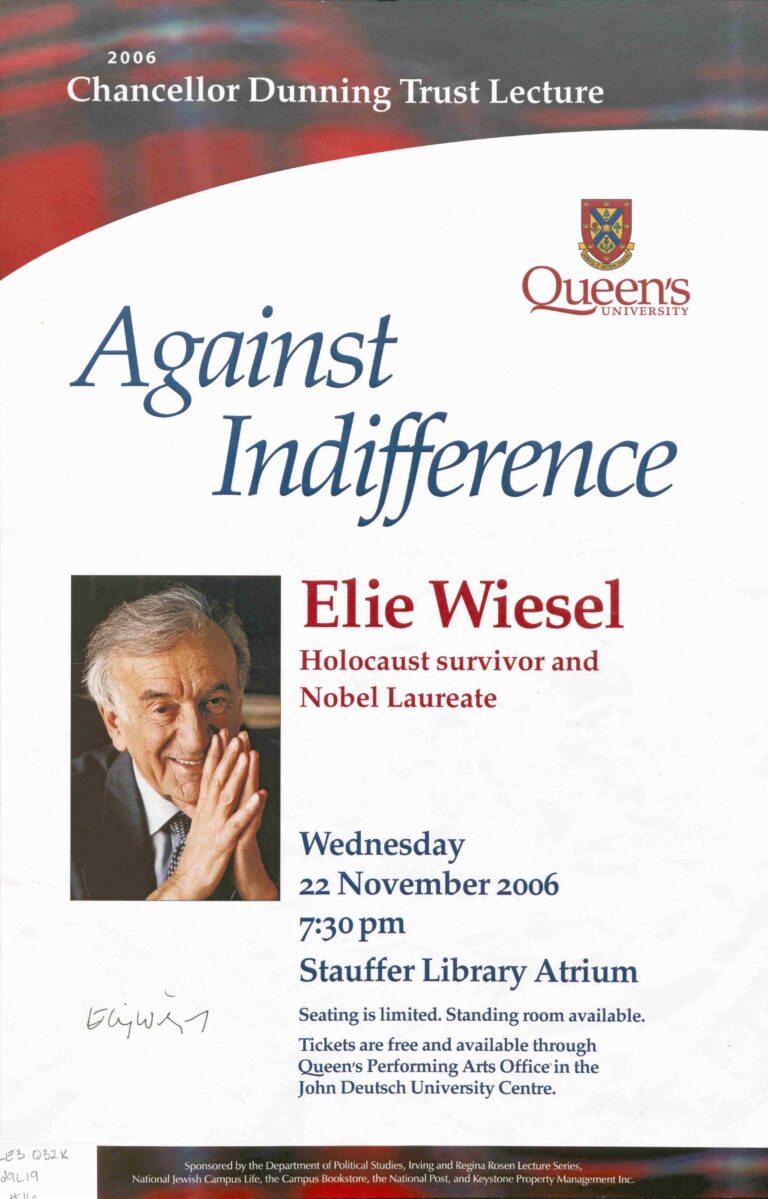
Elie Wiesel is a Nobel laureate and a Holocaust survivor. He was born in Sighet, Transylvania in 1928. His family was captured and transferred to the Auschwitz concentration camp in 1944 two weeks before D-Day. There, his mother and sisters were taken away. He was only reunited with two sisters after liberation. After liberation, he and other children were taken to a French orphanage. A decade later, he began writing and has since wrote 47 books. In 1955, he wrote Night, which told the story of his Holocaust experience. In 1986, he was awarded the Nobel Peace Prize for his work as an advocate for human rights. At the time of his talk, he was Andrew W. Mellon Professor in the Humanities at Boston University.
At his Dunning Trust lecture in the atrium of Stauffer Library on November 22, a crowd of 1200 gathered to hear his life story. He spoke against indifference: “humanity must fight indifference in order to be what it is.” He also explained his dismay when he found out that the Allies had knowledge of concentration camps and did nothing, and his anger at the emergence of new forms of terrorist and nuclear warfare in the 21st century. Indifference, he said, was the opposite of love and education. He spoke against the growing belief that there was no difference between good and evil, between life and death. Evil is human, weakness is human, but indifference is not, Wiesel argued, it is the negation of whatever is noble in humans. Wiesel also described how his experiences in the Holocaust have helped him to recognize his own responsibility to bear witness to the atrocities of the world. He also spoke about the reemergence of “religious fanaticism” in the 21st century, and mourned the new kinds of war and weapons it was introducing. He encouraged students to follow their interests, but whatever they did, to think higher and feel deeper.
